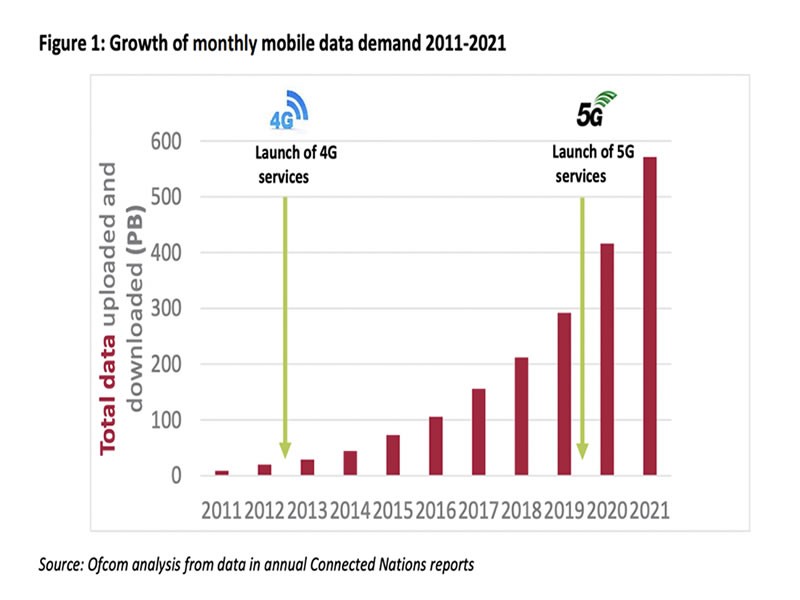Insight Blog
Agility’s perspectives on transforming the employee's experience throughout remote transformation using connected enterprise tools.
5 minutes reading time
(1048 words)
Getting the Best Value From Your Smartphone: 4 Measures to Take to Avoid the Pinch During a Cost of Living Crisis
Getting the Best Value From Your Smartphone: 4 Measures to Take to Avoid the Pinch During a Cost of Living Crisis
Prices are rising at rates we haven't seen since the recent times, however here are a few measures you can take to manage the rising costs.
Buying and using mobile phones has rarely been easy, but as we face a heavy cost of living crisis, it can feel as though we can't catch a break.
In this day and age, owning a smartphone is nothing short of essential for many of us, which means that it's a necessary expense–whether we choose to pay monthly or opt for pay-as-you-go services to use our devices.
Although owning the latest handset and consuming data more frequently can make smartphone usage expensive, there are a number of measures that can be taken in order to keep costs down regardless of how often you use your phone.
With this in mind, let's explore four cost-of-living-crisis-busting measures that can help you to continue enjoying your smartphones and using data without breaking the bank:
#1. Keep Track of Your Data Usage
In recent years, data has become the single most important aspect of owning a mobile phone. So much so that it's vital that we get our data allowances right when we take out a smartphone contract.
As Ofcom data shows, we now collectively consume nearly 600 petabytes of data each year, and as 5G services reach greater adoption levels, this figure is only likely to continue rising.
Although the volume of data we use is rising, it's important to avoid overestimating the amount you need each month. Most network providers offer insights for customers and can display their average data usage over the duration of their contract. If you're using significantly less than you're paying for, it's worth lowering your allowances at the next opportunity.
For the many of us who use more data to stream videos and play games on our devices, shopping around can do you the world of good and there are plenty of deals to discover. For instance, GiffGaff has recently upped its data allowances for customers to offer 20gb of monthly data usage for £10 per month on SIM-only deals. These prices have also been capped until the end of 2023, so there are no nasty surprises on the horizon in the form of revised costs.
Furthermore, there are a range of varied deals that can include smartphones along with GiffGaff's low-cost SIM cards, so it's easy to get yourself set up on the network.
#2.Consider Introducing Usage Caps
We've all been there. You're streaming video content on your smartphone to kill some time and you get that dreaded warning about using up all of your data. Even if we're being cautious about our required data, it's still easy to use up our allowance if we forget to turn on our WiFi settings for a couple of days or find ourselves requiring more 4G or 5G outside of the house.
On certain plans, running over your data allowance can be extremely expensive, and might run up eye-watering bills.
However, providers now offer the option of including spending caps on the terms of your service, which means that you can have your data switched off the moment you go beyond your cap. This means that you could add a £5 overspend cap to your plan as a safety net to keep you covered but to avoid any heavy charges being incurred.
To limit your data expenses, it's worth getting into the habit of looking for WiFi hotspots when you're out and about and are thinking about using data–just be wary of unsecured connections that may be vulnerable to hackers.
#3.Let Your Everyday Purchases Pay Your Phone Bill
In a cost of living crisis it's always important to limit your spending wherever possible, but did you know that there are apps out there that can provide cashback on purchases that directly subsidises your phone bill?
Platforms like Airtime Rewards are completely free to use and by connecting your bank cards to the service, it's possible to earn money back on purchases at participating retailers like Argos, Boots, Wilko, and Greggs. Once you've earned more than £5 in cashback, your balance can be redeemed and subtracted from your phone bill. What's more is that the service works for both pay monthly and pay-as-you-go SIM cards.
You can also make your smartphone contract stretch further by looking at the deals that can be secured through your network provider. Historically, O2 has been a good option for customer freebies via the network's Priority app, where free hot food at Greggs and Pizza Hut, and drinks at a range of participating bars regularly pop up as an added extra which can really help to mitigate the cost of your monthly bill.
#4.Make Money on Your Old Phones
So many of us are guilty of letting our old smartphones fester in drawers for years on end when there's a small fortune to be made from recycling our devices.
Although the money you can gain from recycling old devices is unlikely to solely justify buying a brand new phone, upgrading for free when your contract is up can enable you to get a new device and make up to £100s on recycling your previous smartphone–which can come as something of a helpful boost if you're looking for some cash.
There are many recycling services out there like Mazuma Mobile and O2 Recycle, and you don't need to be a customer or hold a recent phone to recycle a device (most companies are even willing to recycle broken handsets). So if you've still got an old phone lying around the house, now could be a great time to cash in.
However, it's also important to point out that you can save even more money on your monthly bills in the long run by avoiding the temptation of upgrading when your contract is up. By choosing to stay with your current phone, you can cut out your device costs completely and stay on a SIM-only contract moving forward.
Although smartphones have become essential companions for us in this day and age, there are plenty of ways that you can help to lower their costs each month. As we all begin to feel the pinch these little measures that you can take could go a long way in helping you to keep some money aside for some of life's other important expenses.
Categories
Blog
(2765)
Business Management
(340)
Employee Engagement
(214)
Digital Transformation
(186)
Growth
(126)
Intranets
(124)
Remote Work
(62)
Sales
(48)
Collaboration
(44)
Culture
(29)
Project management
(29)
Customer Experience
(26)
Knowledge Management
(22)
Leadership
(20)
Comparisons
(8)
News
(1)
Ready to learn more? 👍
One platform to optimize, manage and track all of your teams. Your new digital workplace is a click away. 🚀
Free for 14 days, no credit card required.













